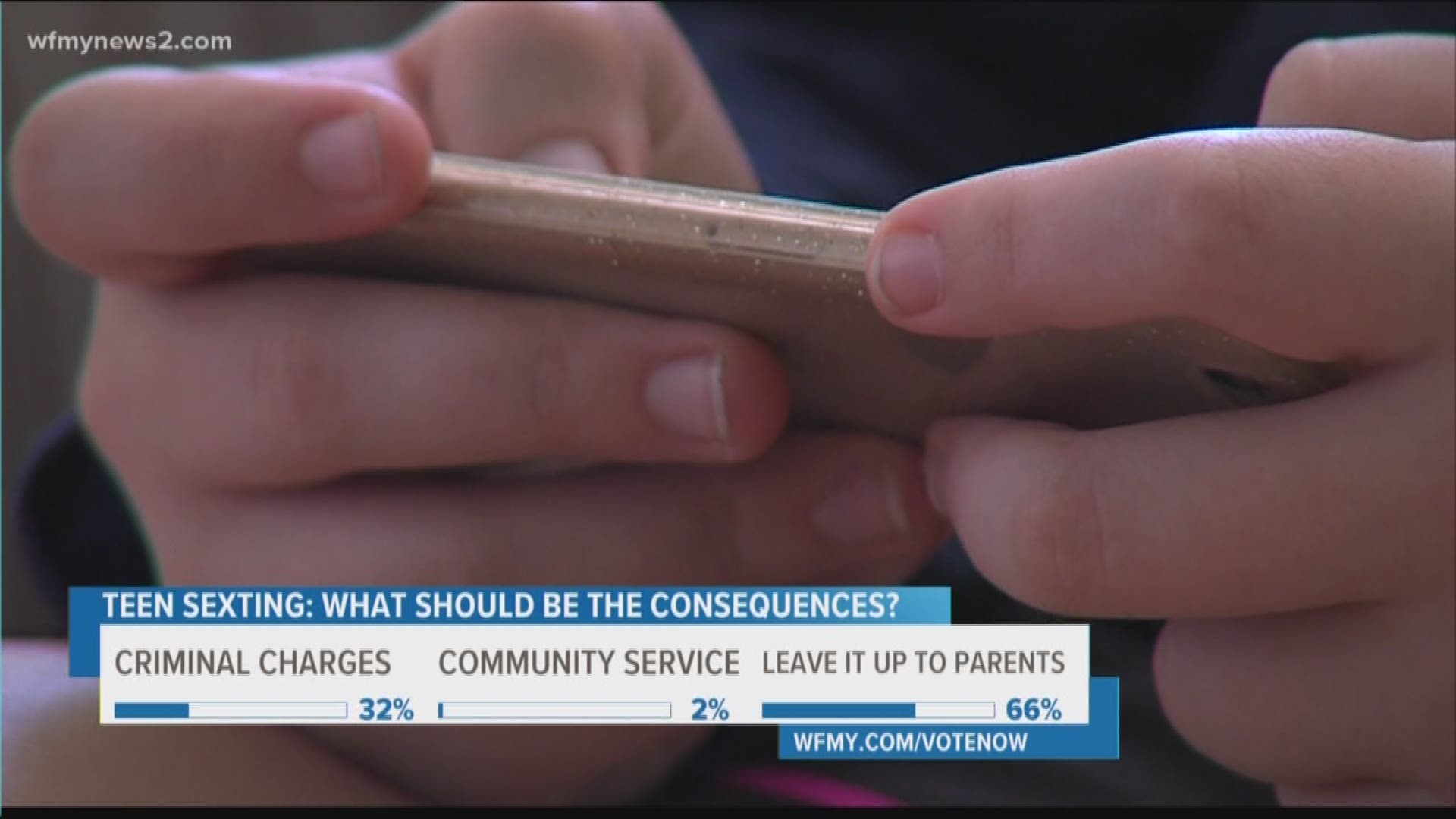GREENSBORO, N.C. — Sexting in many states is an act that could get your teenager into a lot of trouble.
The problem is it most likely won't go away. The American Academy of Pediatrics says 1 in 4 teens admits to sexting.
Sexting is sending or receiving sexual explicit photos or videos, like a naked selfie.
Greensboro Clinical Psychologist Dr. Mary Ann Garcia says the consequences are not top of mind for teenagers.
"Teens will often say, 'Oh I was just joking. I was just flirting or it's just kind of fun.' They are not seeing it as something serious," Dr. Gracia said.
But they need to take it seriously, especially in North Carolina. Criminal attorney Locke Clifford explains why.
"The child pornography laws defines a minor as anyone who is not reached his her 18th birthday," Clifford said.
So if you're underage child exchanges a nude photo with someone, technically, they're creating or receiving child porn. Because it's a felony, they can be charged as adults-even at 16 or 17.
"I call it crazy these laws are because they're so inconsistent," Clifford said.
The law states teen sexters can be both an offender and a victim at the same time.
Sexting could lead to jail time, even for teens in a relationship.
"The worst part is for at least 10 years that person is going to be a registered sex offender," Clifford said.
Clifford says he agrees with a new report in the medical journal "Pediatrics."
Researchers say Consensual teen sexting should be addressed by parents, not the criminal justice system.
Dr. Garcia says it starts with a parental conversation.
"You have a clear understanding of rules and expectations and boundaries, but also trying to sort of give them a sense of understanding what the consequences are." Dr. Garcia said.
According to "Pediatrics," 27 states have passed laws that essentially decriminalize teen sexting.
If they're caught, they'd pay a fine instead of face jail time.
Lawmakers have not proposed a similar bill here.

